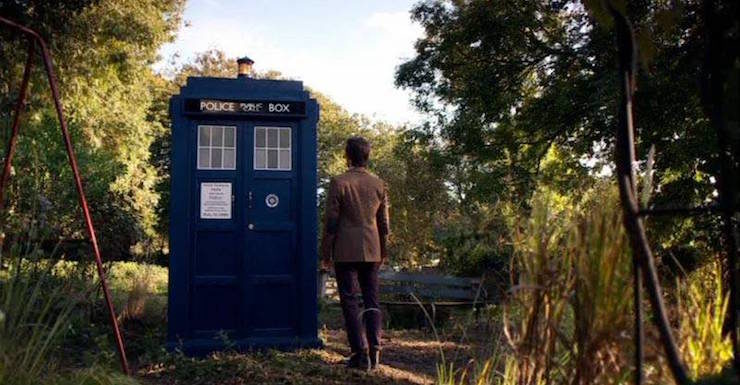Doctor Who returns! Twice! Sort of! The entire run of the original series (at least, all of the show that still exists) is currently streaming on Twitch, while the 2005-and-onward run of Nu-Who is available on Amazon Prime and has just returned to BBC iPlayer here in the U.K. in preparation for the arrival of the Thirteenth Doctor later this year.
That’s a hell of a lot of TV to enjoy and obsess over, but it’s also an opportunity to revisit some great episodes that have too often been overlooked, even by the rabid fandom surrounding the newer seasons. So, here’s my list—covering one episode per each season or so—of the episodes of post-relaunch, 2000s-era Doctor Who that may not make most Top Tens, but remain far more interesting and fun than they’ve been given credit for.
“Boom Town” (2005, Ninth Doctor)
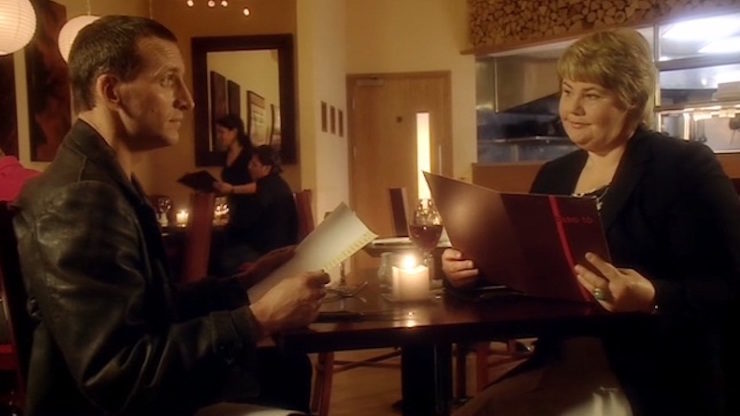
Yep. I went there. And the show went, officially, to Cardiff for the first of a lot of visits across multiple series.
“Boom Town” is unlike anything the show has attempted before, and for me it’s always played as one half damage control and one half swinging for the fences. The damage control side of things is pretty solidly focused on the Slitheen, who shift here from fat-shaming fart gags with occasional dialogue to something much more interesting and nuanced. The dinner conversation between the Doctor and Margaret is still a series highlight for me and does a lot to show how different Nine is from his predecessors—as well as how much odder this take on the character was.
Plus, this is the first time the show overtly focused on Cardiff as a setting, and it gives it a feel, and look, all its own. Captain Jack, Torchwood, The Cardiff Rift: For good and ill, it all starts here.
“The Impossible Planet” / “The Satan Pit” (2006, Tenth Doctor)
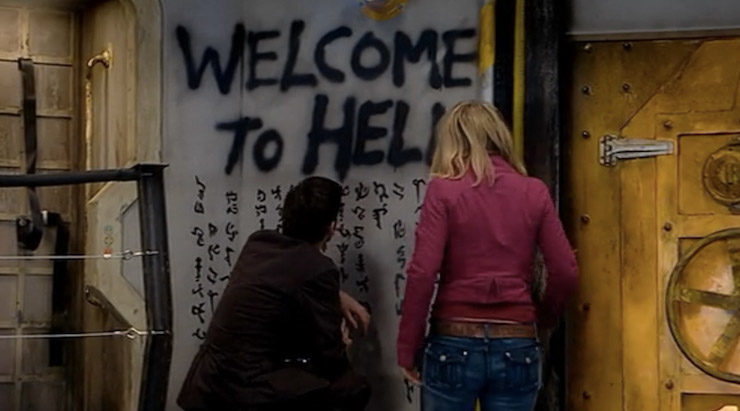
Season 2 is, by and large, an embarrassment of riches: The Arthur Dent nod in “The Christmas Invasion,” the surprisingly grounded portrayal of abusive relationships in “The Idiot’s Lantern,” the attempt to do something very different with the monster in “Fear Her.” Not all of it works, but the show is trying new and interesting things, and that counts for a lot.
This two-parter is the highlight for me, though. Not just because it interrogates and brings to the fore both the Doctor and Rose’s smugness and their growing romance, but also for the fact that when it comes down to it, this is a story about what happens when a genius runs off the edge of the map. The Tenth Doctor, faced with real darkness, talking to nothing, trying to figure out what he believes, makes for a surprisingly gutsy play for a Saturday evening show and the payoff works brilliantly, in the end. Plus the Torchwood Archive survivors totally need to come back at some point.
“The Runaway Bride” (2006 Christmas special, Tenth Doctor)
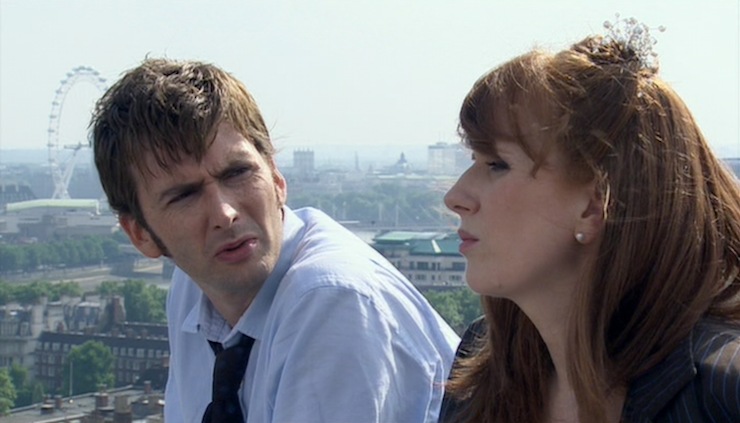
Yep—I went there, too. This season features science fiction traffic jams, a bad guy straight out of Resident Evil, near-real time disaster, and the best payoff in the show’s history…
BUT.
This episode still stands out, for me, above the rest. Yes, Donna’s shrill. Yes, she’s annoying. Yes, she learns. Yes: all of this is EXACTLY THE POINT. Donna embodies the non-Doctor Who-watching public encountering the show for the first time and being instantly annoyed at its nonsense. It’s a brilliant idea and one the episode has never got enough credit for embracing. Plus, this is the first time the series openly introduces the idea that the Tenth Doctor is one bad choice away from being a war criminal and, through that idea, explores why the Doctor hates travelling alone. That point becomes so vital later on in the series that you have to respect its introduction here.
“Turn Left” (2008, Tenth Doctor)
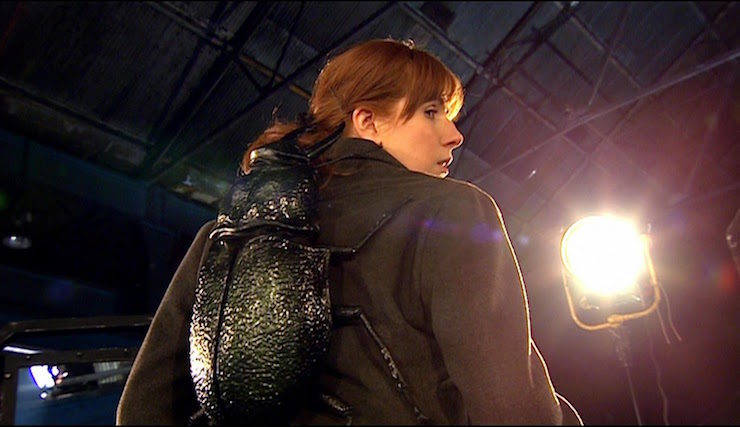
You also have to respect making a bug into a feature, and at no point has Doctor Who done that better than the show’s willingness to turn scheduling difficulties into an opportunity to turn the spotlight on two companions, Donna and Rose, and have them team up to try to save a Doctor-less world rapidly degenerating into a nightmarish dystopia.
“Turn Left” is pretty much the Platonic ideal for the concept, straight out of the gate. The exploration of what Donna does for the Doctor, and the sheer heroism of her own choices, is extraordinarily powerful. As is the slow, relentless parade of disaster the world is subjected to without the Doctor’s intervention. And also the depiction of the rise of fascism in the UK, openly discussed on a Saturday evening TV show written before the second decade of the 21st century.
“Planet of the Dead” (2009, Tenth Doctor)
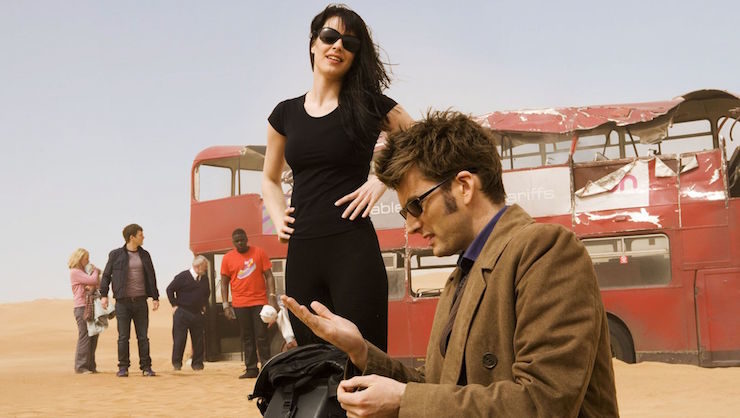
Best non-companion ever! Lady Christina is just amazingly fun, and the idea of having the Doctor and a character who’s basically the Doctor Who equivalent of Lara Croft team up is inspired. In addition, the location work is on point, it’s a welcome return for UNIT, the episode is a moral high point for the Tenth Doctor (one which he wouldn’t reach again before sacrificing his life), and also we get an early Daniel Kaluuya appearance! Lots to enjoy here, basically.
“The Eleventh Hour” (2010, Eleventh Doctor)
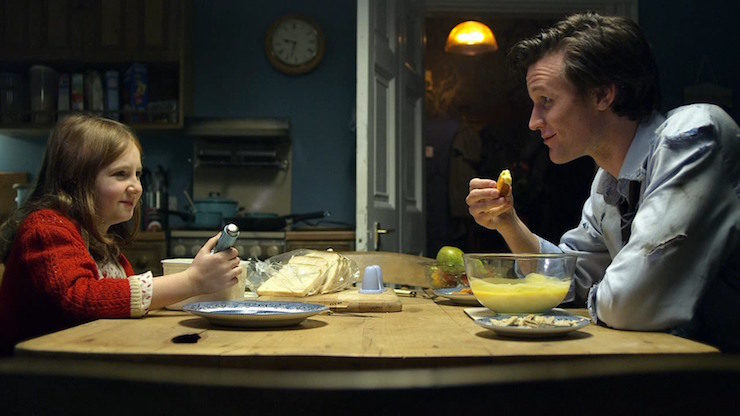
If you’re looking for all-time classics, then this season features more than a few: “The Lodger,” “Vincent and the Doctor,” “The Time of Angels,” “Flesh and Stone”…they’re all fantastic.
None of them are as FUN as this episode, though.
From the opening through to the Doctor’s triumphant monologue, this remains one of the best post-regeneration stories ever made. Matt Smith’s Eleventh Doctor arrives all jangly and awkward and fully formed, Amy Pond is wonderfully fun from the moment we meet her, and the script is littered with brilliant dialogue and some massive surprises. The Doctor WILL see you now!
“The Girl Who Waited,” (2011, Eleventh Doctor)
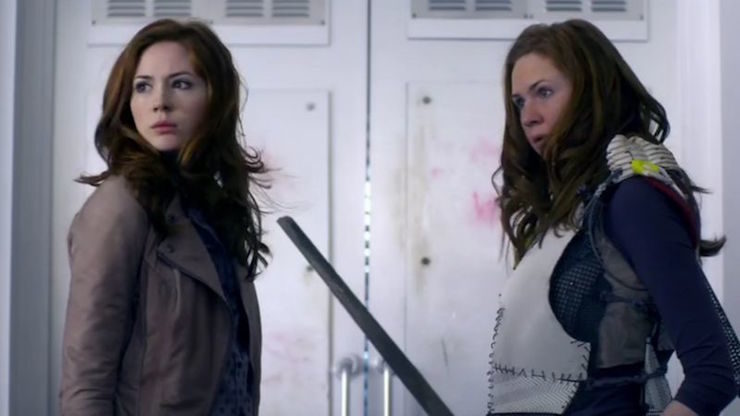
This episode is a cold knife drawn across your feelings for 45 minutes. It’s an almost ridiculously tight script built around a brilliant central conceit, careening toward an absolutely thunderous gut-punch of an ending.
It’s also notable that this is where the show’s (justifiably) often-criticised “Older man/pretty female assistant” dynamic began to be enthusiastically interrogated. Amy and the Doctor have a relationship that’s as compelling as it is toxic, and there’s a moment at the end of the episode where both he and the older Amy clearly realize that. That they do what they do anyway only proves how untenable the set-up is, and leads directly into the Twelfth Doctor’s relationship with Clara. It’s also worth noting that this Doctor’s run descended into some pretty dark territory, and this is one of the very few times that the portrayal of the character as a cold-hearted manipulator of the people around him really works for me.
“Hide,” (2013, Eleventh Doctor)
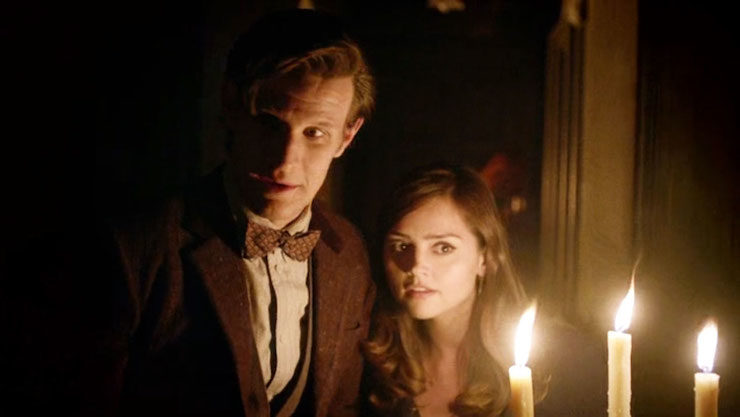
I am always there for the show when it’s willing to play with its own format and the expectations of its audience—that kind of narrative judo, done right, allows the show to explore new routes, and find new ways of tapping into its core ideals, even now.
Here, it’s done extremely right.
Time travel. Two romances, one non-human. Ghosts. “Hide” crams a lot into its single, wonderfully gothic location. Plus the guest turns from Dougray Scott and Jessica Raine are great and the episode is, fundamentally, about compassion, love, and hope. Which, given the horror stylings, is all the more impressive. Now if only they’d been able to get the rights for the Doctor/Quatermass crossover that writer Neil Cross originally wanted…
“The Day of the Doctor,” (2013, Eleventh Doctor)
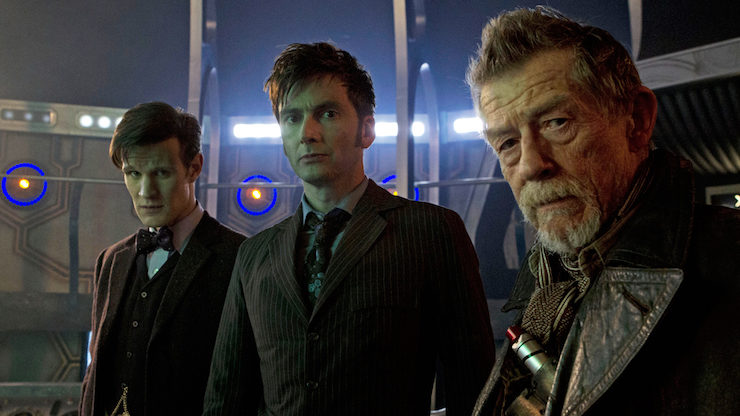
The Eleventh Doctor’s swan song didn’t work for me at all but this special is flat-out brilliant from start to finish. Not only because of the Tenth/Eleventh/War Doctor dynamic, but for the number of glorious character moments it generates. The use of Rose is inspired, the speech about what the TARDIS’ materialization sound means makes me tear up even today, and the entirety of the last 20 minutes is just a series of sustained, brilliantly executed payoffs: “No sir, all THIRTEEN!”, plus The Curator, Gallifrey Falls No More, taking the long way home… Hell yes, to all of it.
“Listen,” (Twelfth Doctor, 2014)
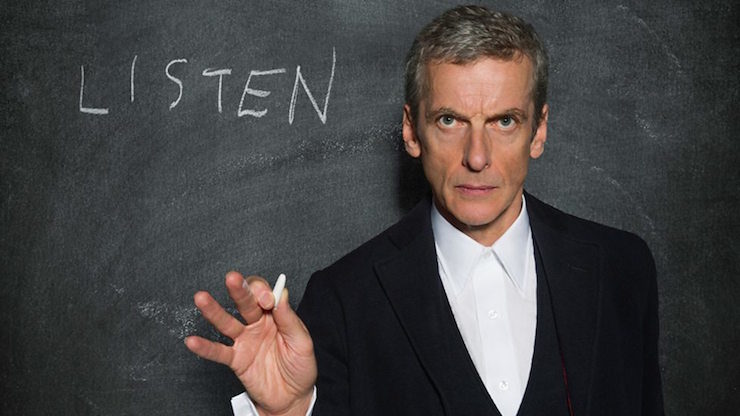
Oh, Twelve! Disreputable aging punk Doctor is very dear to my heart and his first season really does throw some massively weird stuff at the wall just to see what sticks. I love “Time Heist” because I love heist movies, but “Listen” is a strong contender for the strangest episode the show’s ever done.
This is a story about fear. And time. And what happens when the traumas of our childhood become the scars and learned behaviours of adulthood. It’s a story about becoming who we are and how a nameless fear given shape is still fear, but is, at least, something we can find the edges of. Endlessly compassionate, profoundly strange and divisive, “Listen” doesn’t work for some people. But for me it works perfectly.
“Heaven Sent,” (Twelfth Doctor, 2015)
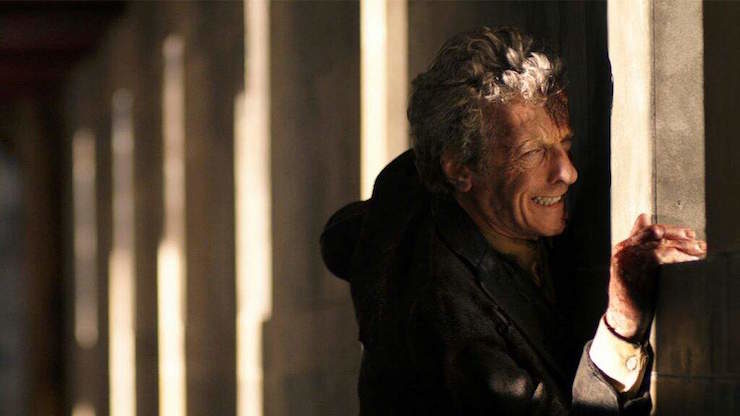
Just as “Turn Left” is the Platonic ideal of the companion story, this is the Platonic ideal of the Doctor-centric story. Trapped in an eternal castle that constantly reconfigures itself and pursued by a relentless foe, the Doctor carries on dialogues with a silent Clara in his head as he fights to understand what’s going on.
And fails.
Again. And again. And again.
Peter Capaldi never turned in a single bad performance on the show, and this is his finest hour. This is the Twelfth Doctor enraged, grief-stricken, determined and, ultimately, at his most courageous. With almost nothing but Capaldi on screen, we’re given a deep dive into the mind of this Doctor and how he grieves. It’s uncomfortable, compelling, and one of the best hours of TV I’ve seen in a long time. As set-ups for season finales go, the show has arguably never been better.
“The Husbands of River Song,” (2015 Christmas special, Twelfth Doctor)
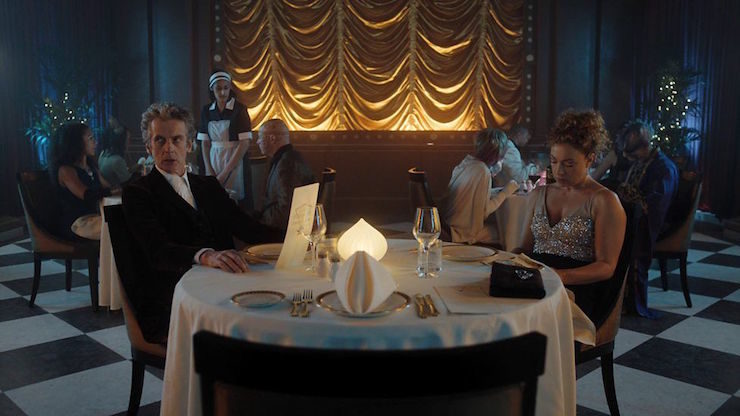
No character has been broken under the weight of the show’s interminable continuity during the Eleventh Doctor’s run more than River Song. Her backwards timeline, the revelation of her parents, and the show’s persistent habit of having the Doctor treat her pretty horribly meant that her curtain call was as much of a mercy as it was a farewell.
Allowing the character to rest for a couple of years paid dividends, as did the inspired idea of her not recognizing the Doctor’s latest incarnation. Kingston and Capaldi have an almost Steed and Peel-esque energy to them and they’re tremendous fun to watch on screen together. Better still, the episode directly addresses some of the show’s previous choices concerning River and the terrible price of her life with the Doctor. All of which leads to one of the best lines the Twelfth Doctor ever delivers, and an ending which feels completely earned: an infinite tear generator that’s also the happy send-off the character of River Song so richly deserves.
“Twice Upon A Time,” (2017 Christmas special, Twelfth Doctor)
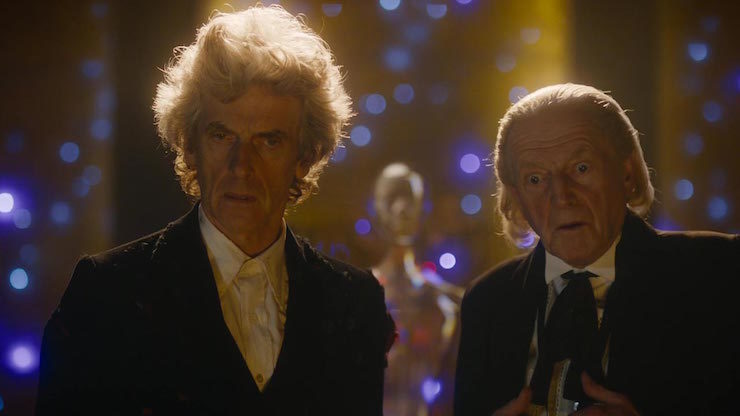
Doctor Who has a problem, and it always will: Decades of continuity, and the weight and expectation that comes with them, create an eternal cycle of trying to please fans of the original while keeping the show as welcoming as possible to potential new audiences.
It’s an impossible problem and this episode doesn’t quite manage to solve it…but boy, does it have fun trying.
United with his first incarnation, also about to regenerate, the Twelfth Doctor finds himself faced with the past and the revelation of just how much he’s changed over time. The First Doctor, in turn, is faced with how much he has to change, and the two men come to the same peace from entirely different directions. The First Doctor knows there’s work to do and others to do it. Twelve, at last, has the answer to the question he asked Clara in “Deep Breath.” He IS a good man. He’s always been a good man. A different one. And it’s a different one’s turn now, too.
All of this is wrapped around a surprisingly gentle plot that doesn’t really have a villain and doesn’t really need one. Instead, it’s as close as the show’s come to It’s A Wonderful Life territory, as the Twelfth Doctor is reassured that his companions will live on in some form. It’s a story that explores grief, peace, and personal acceptance in a far less heavy-handed way than some of the previous specials, and leads to Capaldi’s final, finest hour.
For the first time since the Ninth Doctor, an incarnation of the Doctor finishes their life on their own terms. Twelve’s final speech is less about his incarnation and more about what, and who, the Doctor has, and always will, be. “Run fast, laugh hard, be kind” is about as perfect a mission statement as you could hope for, and this is about as perfect a sign-off as you can get. No wonder the Thirteenth Doctor’s first words are “Oh, BRILLIANT!”
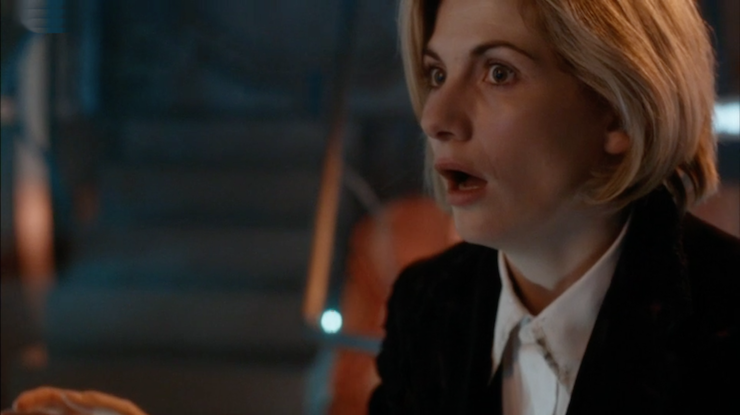
…So there you go. The beautiful thing about the show is not just that there’s so much of it but that you can choose your own path through it, via Twitch, iPlayer, Amazon, DVDs, by season, by Doctor, chronologically. Do whatever you want. Just, maybe take the long way round? The Doctor always seems to have more fun that way.
Alasdair Stuart is a freelancer writer, RPG writer and podcaster. He owns Escape Artists, who publish the short fiction podcasts Escape Pod, Pseudopod, Podcastle, Cast of Wonders, and the magazine Mothership Zeta. He blogs enthusiastically about pop culture, cooking and exercise at Alasdairstuart.com, and tweets @AlasdairStuart.










